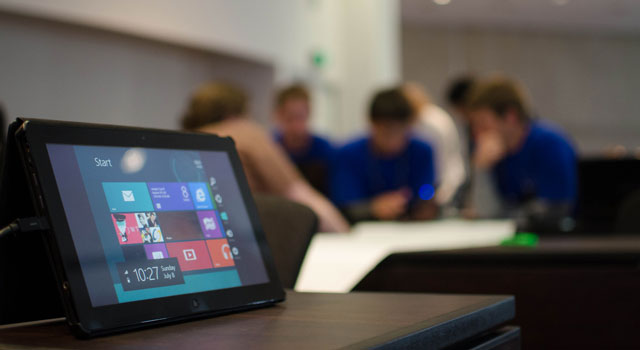
Few schools in South Africa have the ability to roll out effective e-learning programmes because of a lack of understanding of these platforms, says an industry insider.
“Despite some pockets of understanding, in our experience many South Africans schools, and the authorities that govern them, are misinformed as to what e-learning actually is,” said Eiffel Corp CEO Ian Light.
Eiffel Corp is an e-learning specialist and Light said that the lack of local understanding of the process makes it difficult to define the exact number of schools that have effective programmes in place.
“We know in South Africa that some of the biggest barriers to schools having a successful e-learning ecosystem is the lack of a well-planned teaching and learning strategy that incorporates technology, a lack of funding to invest in online platforms to administer and deliver e-learning content as well as the complementary subsidising of network data and connectivity infrastructure at places of learning,” said Light.
In Gauteng, education MEC Panyaza Lesufi has spearheaded the provincial e-learning programme in which the paperless education system is expected to cost around R17bn.
However, the programme has had challenges, with a number of devices stolen.
“The department is making strides to recover stolen smart boards and outstanding tablets that are still with learners. More than 100 smart boards have been stolen in our schools since the installation in July 2015 of the ICT programme in the grade 12 classrooms in 377 schools,” Lesufi said in January.
In the Western Cape, e-learning initiatives include the Khanya Technology in Education, Dassie and Telecommunications projects which seek to broaden the base of technology in education in the province.
But a critical component is the training of teachers to manage the delivery of the curriculum through technology tools.
“With close to 400 000 teachers in South Africa, it should be clear that the training (perhaps we should call it up-skilling) of teachers is a massive task. It will be an expensive and a labour intensive exercise. But unless it is done in tandem with the roll-out of technology devices in schools, there will be minimal return on the technology investment,” Kobus van Wyk said recently.
Van Wyk is CEO of the Associated Distributors of Educational Supplies in Southern Africa and managed the Khanya Project for a decade.
“South Africa needs strong, committed national leadership and complementary government policy to foster innovation and direct efforts to encourage teacher skills growth in this area,” said Light.
He cited a Harris poll that revealed more than half of school children said they knew more than their teachers about the use of tablets and computers for learning.
“Therefore, for e-learning to be effective and assist with bridging the divide for all learners, it needs effective planning that integrates with sound, measurable academic practices, cheap and reliable data connectivity as well as committed, long-term funding from government,” said Light.




